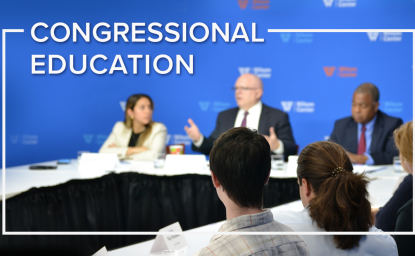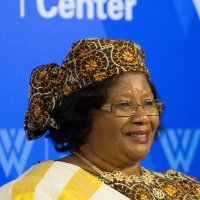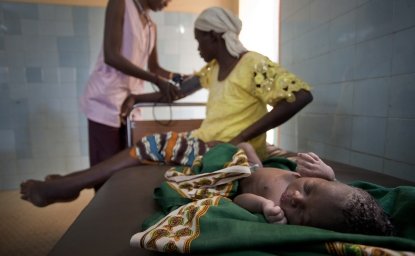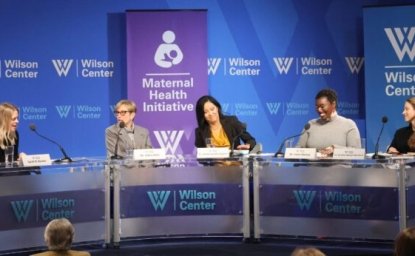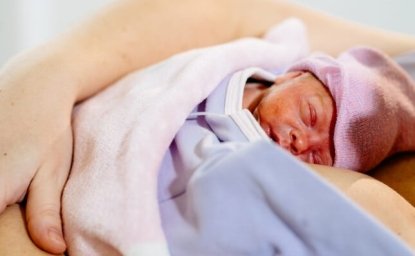Joyce Banda, Malawi’s first female vice president, became Malawi’s first female president in 2012 after the sudden death of Bungu wa Mutharika in office. From day one, maternal health and girls’ education were a priority in her administration, she tells the Maternal Health Initiative’s Roger-Mark De Souza in an interview at the Wilson Center.
After getting treatment for post-partum hemorrhage following the delivery of her fourth child, Banda made it her mission to do more to help women facing death while giving life. As president, she focused on behavior change and improving maternal health infrastructure in the rural countryside.
She started by working with the country’s network of traditional chiefs, she tells De Souza. They are “the custodians of tradition and culture, but…they are also listened to,” she says. Unfortunately they had little to say about childbirth, which has many taboos surrounding it in Malawi (as elsewhere). Banda appealed to the chiefs’ positions of power, telling them their help was needed and they have a responsibility to weigh in. And they responded, she says, becoming allies and “critical partners” in the fight against maternal mortality by helping to change behavior at the community level.
Her government also worked with traditional birth attendants to help turn them into a referral network for better equipped and staffed clinics. The effort paid off with a 30 percent reduction in maternal deaths in two years and an award from the African Union.
"A girl child who has been violated in the name of culture is not one capable of learning or competing on equal footing with boys in the classroom"
The African Union provides support for maternal health efforts across the continent, Banda says. Its Campaign on Accelerated Reduction of Maternal Mortality in Africa appoints goodwill ambassadors and works to sensitize leaders to the number of women dying and what can be done to stop it. The initiative helps leaders “realize they are in the driver’s seat,” Banda says. “There’s no excuse for any president on the continent because there’s a critical partner sitting at the African Union supporting the fight against this unnecessary death.”
Still, there’s more to be done, particularly for young girls, Banda says. While she commended governments for devoting resources to girls’ wellbeing, she criticized the Obama administration and other development agencies for focusing on late childhood and adolescence. Last year’s State of the World Population Report, for example, from the United Nations Population Fund, is centered on 10-year-old girls. But much of what shapes a girl’s life happens before this age, Banda says. “I can talk from today until tomorrow about what’s happening from 0 to 10.”
“A girl child who has been violated in the name of culture is not one capable of learning or competing on equal footing with boys in the classroom,” Banda writes in an essay for the Center for Global Development, where she has been working on this issue. “Ages 0 to 10 are when girls are most vulnerable to these traditions and mindsets that inform underinvestment in the girl child.”
President Banda ends her fellowship at the Wilson Center this month. We also sat down with her for a longer interview to be transcribed about how her life experience informs her work, balancing tradition with change, and more detail on her core causes – so stay tuned.
